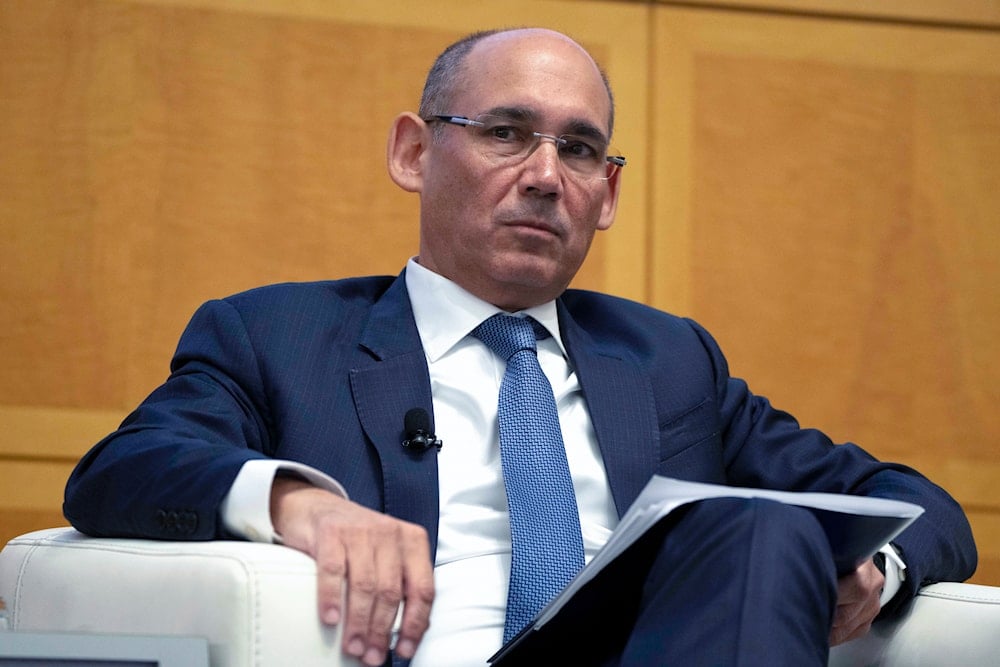'Israel's' economy at risk due to IOF spending: Central bank
"Israel" amped up its defense budget for 2024 amid its genocide campaign in Gaza, which has now led to the martyrdom of 32,845 people and the injury of 75,190 others.
-

Amir Yaron, Governor of the Bank of Israel, is introduced at the 24th Jacques Polak Research Conference at the International Monetary Fund on Thursday, November 9, 2023, in Washington. (AP)
Bank of Israel Governor Amir Yaron confirmed that "Israel’s" increasing military budget spending is endangering the economy as the proportion of debt to gross domestic product skyrocketed 1.4 percentage points to 61.9% at the end of last year.
After submitting the bank’s annual report to the occupation's Prime Minister Benjamin Netanyahu, Yaron said on Sunday, “An assessment by markets that Israel is moving toward an increasing debt route in the medium and long term could lead to an additional increase in yields, devaluation, and inflationary pressures”.
"Israel" amped up its military budget for 2024 amid its genocide campaign in Gaza, which has now led to the martyrdom of 32,845 people and the injury of 75,190 others.
The government already agreed to boost spending by 10 billion shekels ($2.7 billion) yearly from 2025, even though some claim it needs to be twice that amount, and the goal of stabilizing the ratio lies at 67% in future years.
Read more: War on Gaza to cost 'Israel' about 10% of 2024's GDP: Central Bank
“For markets to show tolerance toward the high temporary deficit during the war, it is important that stabilization of the debt-to ratio be the guiding principle,” Yaron noted.
View this post on Instagram
Netanyahu responded to the report by saying that "Israel" needs to adapt its budget “to the needs unveiled in this war” while calling to be more self-sufficient in producing weapons.
Back in November, Bloomberg said in a report that during October last year, "Israel's" foreign reserves decreased by $7.3 billion (3.7%) to a total of $191.2 billion.
The drop was primarily attributed to the regime's central bank's efforts to support the shekel following the start of the resistance operation on October 7.
Israeli stocks and bonds experienced significant declines as traders were concerned that the war might spill out into the region.
Since the start of the resistance operation, several countries have called for a boycott of Israeli products and have expelled Israeli envoys.
The global movement to boycott Israeli products is likely to have severe consequences on trade and investor sentiment, which will impact the regime's economic performance.

 3 Min Read
3 Min Read










